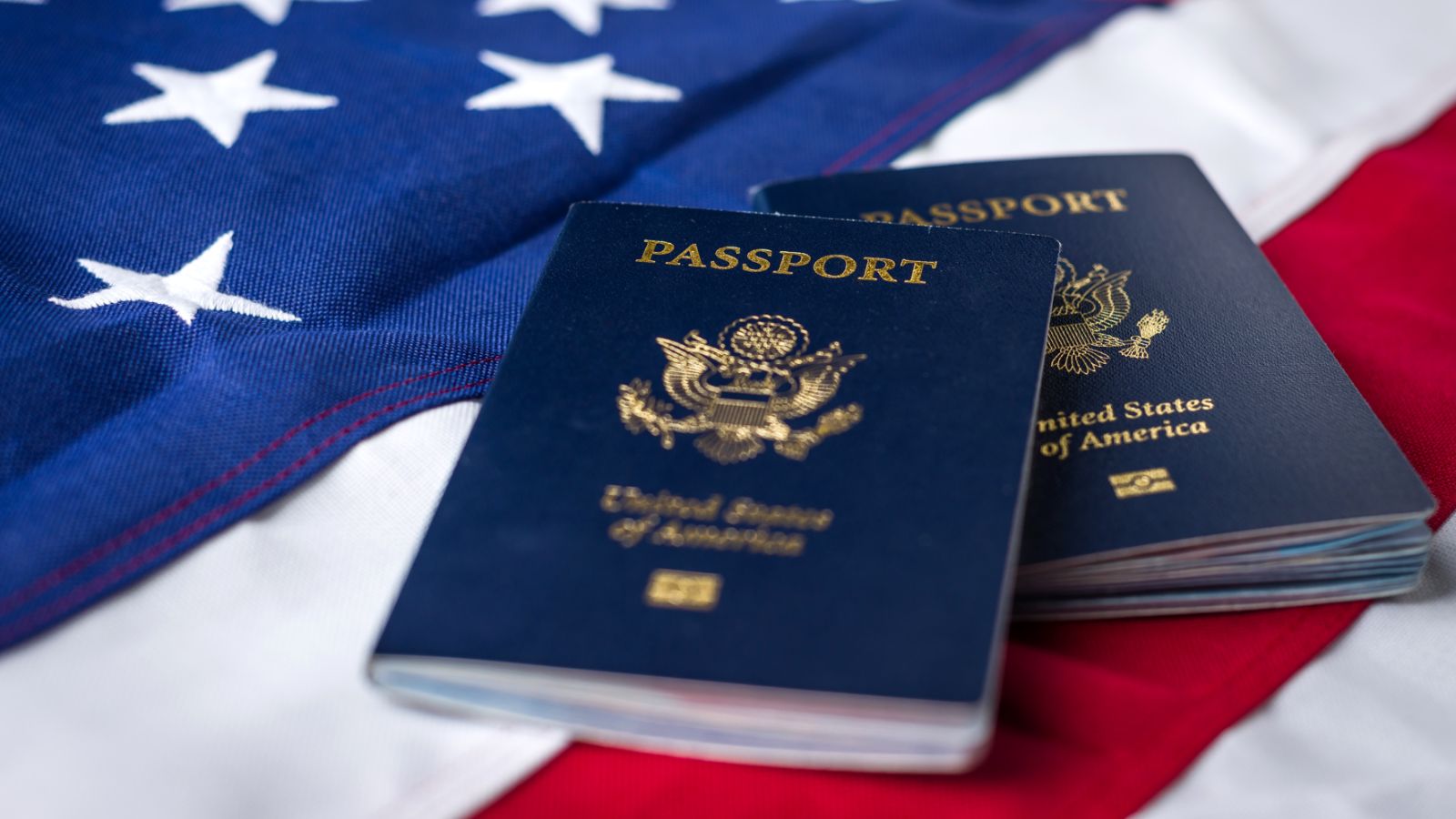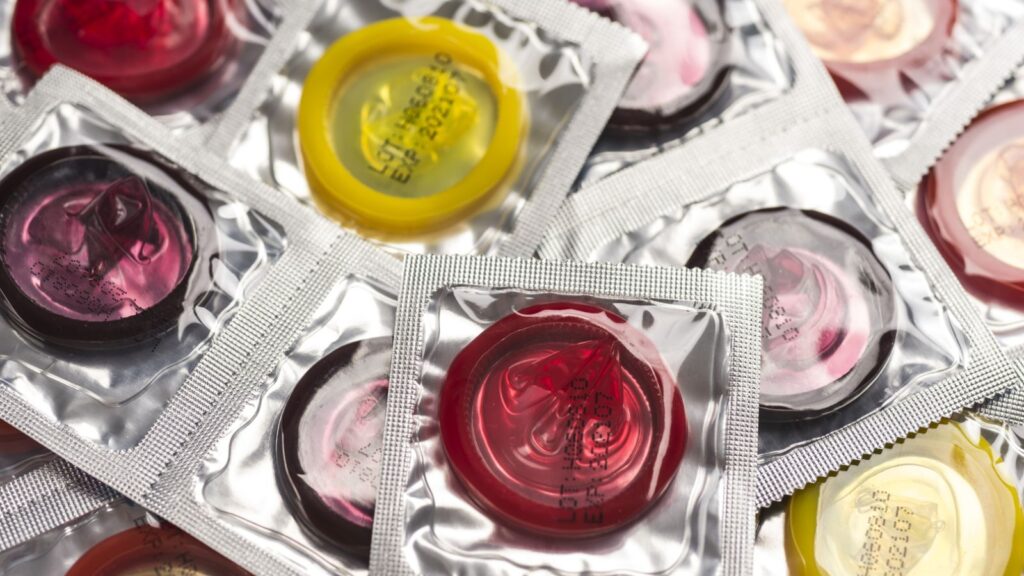It’s always wise to avoid carrying items in your wallet that would be a hassle to replace if lost or stolen. By keeping only what you need for daily use and regularly decluttering your wallet, you can lighten your load and avoid unnecessary risks. In this article, we highlight 18 items that are better left at home—your future self will be grateful!
Password cheat sheet

According to a survey by the Pew Research Center, 73% of people use a password cheat sheet. Writing down passwords on paper in your wallet is a significant security risk. A thief will easily access your online accounts if your wallet is lost or stolen. Use a secure password manager app instead of a physical cheat sheet.
Blank checks

Carrying blank checks is like handing a thief a signed, blank check to your bank account. Leave your checkbook at home and only bring a check when you know you’ll need it that day. Along with deposit slips, Discover says, “These items may have more information on them than you think, including your name, address, bank name, routing number, and account number.” Thieves can easily use blank checks from a stolen wallet for unauthorized transactions.
Stack of receipts

A wad of receipts in your wallet is unnecessary. While businesses can no longer print whole credit card numbers, receipts still contain the last four digits and your full name—plenty for a skilled scammer to phish for more information, says ABC News. Shred receipts daily or opt for digital receipts instead.
Spare keys

Never keep a spare house key in your wallet. If thieves get your purse, they could easily let themselves into your home and clean you out. At the very least, you’d need to pay a locksmith to change your locks. Leave spare keys with a trusted neighbor or friend instead.
Passport

Your passport should only be in your wallet if traveling internationally that day. A stolen passport gives a thief everything they need to steal your identity or even travel in your name. When traveling, use a hotel safe and carry only a photocopy of your passport, not the real thing.
Multiple credit cards

Slim down your wallet by carrying only one or two credit cards you use regularly. The more cards you have, the more you’ll need to cancel if your wallet is lost or stolen. Keep a list of the cards in your wallet at home and the numbers to call if they go missing.
Birth certificate

A thief could use your birth certificate and other stolen documents to wreak havoc on your finances and identity. When you need to bring it somewhere like the DMV, take it directly there and back home. Don’t leave it in your car, either.
Excessive cash

Carrying large amounts of cash is risky. If your wallet is stolen, you could lose significant money. And with cash, it’s hard, if not impossible, to track the thief and retrieve your money—meaning once it’s gone, it’s gone.
Gift cards

Don’t carry a stack of gift cards in your wallet just in case you end up at that store or restaurant. Thieves can easily use gift cards like cash, with no ID needed. Keep gift cards at home and grab the one you need before heading to the retailer.
USB drive with sensitive info

Never keep a USB thumb drive with financial documents, tax returns, or other sensitive personal information in your wallet. A thief could easily access all that data. Keep private information on an encrypted external hard drive in a locked safe at home instead.
Coins

A wallet full of coins will quickly become a bulky, disorganized mess. Keep a small amount of change in your car’s cup holder or at your desk for vending machines and parking meters. The rest should go in a jar at home until you can deposit it at the bank.
Jewelry

Your wallet is no place for expensive jewelry like wedding rings, earrings, or necklaces. Not only can jewelry stretch out and damage the wallet itself, but it’s also an easy target for thieves. If you need to transport jewelry, keep it in a small pouch inside a bag or purse.
Unredeemed lottery tickets

Carrying around old lottery tickets you still need to check is pointless. A thief could quickly redeem a winning ticket in your lost wallet. Check your lottery tickets as soon as possible after a drawing, and leave them at home in the meantime. Forbes says, “Sign the back of the ticket immediately and then store it somewhere secure. A safe deposit box at a bank or a safe in your home are good choices.”
Library card

Keep your library card out of your wallet unless you’re heading straight to the library. While a thief likely won’t be able to check out books in your name, carrying them only when needed is still best. See if your library offers a digital card in their app instead.
Membership cards

Gym memberships, warehouse club cards, and other membership IDs don’t need to live in your wallet 24/7. Carry them only when you’re actually visiting that business. Consider using digital versions in the company’s app or taking photos of the barcodes for scanning.
Punch cards

Many small businesses still use physical punch cards for loyalty programs. But a wallet is an easy place to forget about them until they’re lost or expired. See if the merchant has a digital punch card in their app or take a photo of your card after each purchase.
Condoms

Wallets can often get warm from being near our bodies for long periods, which can damage the condom by weakening the latex, increasing the chance the condom might burst, and making it less effective. Credit cards can also cause tiny holes, which can ruin condoms, too.
Paper scraps with sensitive info

Never jot down sensitive information like PIN numbers or passwords on scrap paper and tuck it in your wallet. That’s a goldmine for a thief. Memorize PINs and use a secure password manager instead of writing this information down.







